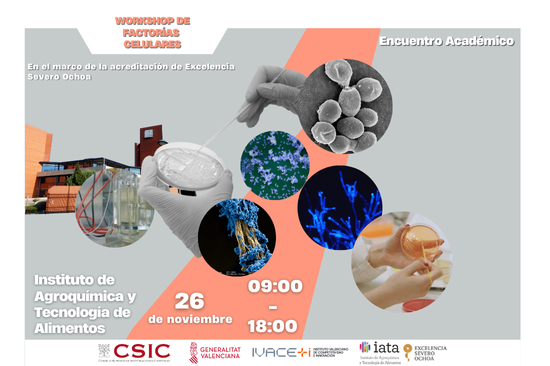
Members of the 21 partner entities of CIRCALGAE's project will meet in Valencia on April 20th and 21th at the 2nd General Assembly of the project. The Institute of Agrochemistry and Food Technology (IATA) will host the meeting on the 21st, which is expected to be attended by more than 50 people. The meeting on April 20 will take place at the headquarters of the RNB cosmetic business group, located in La Pobla de Vallbona. The Packaging research group, from the Department of Preservation Technologies and Food Safety of IATA, has organized this meeting.
The CIRCALGAE project aims to develop sustainable algae-based biorefineries and products supporting the health of aquatic ecosystems for a healthy planet and people. IATA's Packaging group is one of the 21 partners who work to valorise industrial algae waste streams into high-value products to foster future sustainable blue biorefineries in Europe.
By developing a new green biorefinery concept, the project aims to extract ingredients with health and functional benefits to produce new high added value products with a neutral environmental impact. These products are intended for food ingredients, protein rich feed and cosmetic formulations.
The cultivation of algae will be optimized, in particular thanks to new parameters that will make it possible to extract ingredients with the greatest possible benefit. In order to integrate a viable economic model, the project involves consumers and professionals through working groups, surveys and tests..
While the European Union has set targets to reduce pressure on natural resources, while creating growth, jobs and carbon neutrality, CIRCALGAE is making a contribution in the algae sector.
Why valorise algae waste streams?
Algal biomass is massively produced (over 36Mt/year worldwide) but at the same time underexploited. Vast amount of waste is generated by the algal industries (up to 95% of the initial biomass in some cases). Through a cascade biorefinery approach this waste material can be transformed into high-value products..
About IATA's Packaging group
IATA'S Packaging Group works in the development of new materials, mixtures, structures and coatings for packaging applications that improve food stability and reduce environmental impact. Characterization of the functional properties of packaging materials with especial attention to food/package interaction issues (permeation, sorption, scalping, migration, release). Study, development and design of new packaging technologies including Modified atmosphere packaging (MAP) and active and intelligent packaging (smart packaging).

